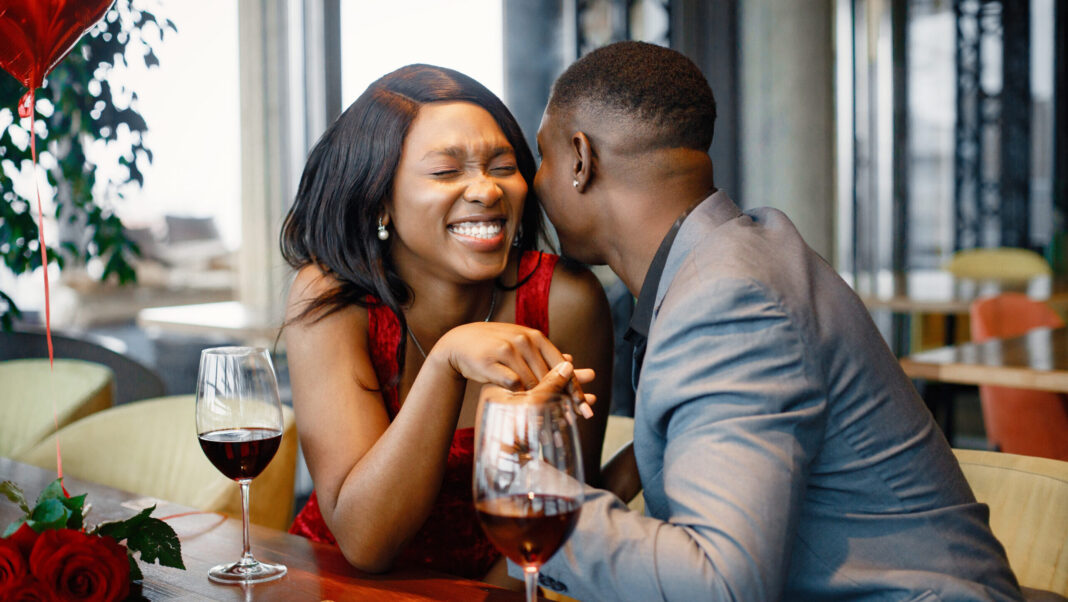Understanding Cuffing Season: What Black Women Really Want in Dating
As the leaves turn and the temperatures drop, discussions around cuffing season heat up. This time of year prompts reflections on relationships, sparking debates about who should initiate, how much a date should cost, and the age-old question of who picks up the check. While these discussions are prevalent, a crucial perspective can sometimes get overshadowed: the desires and expectations of Black women in the dating arena.
The Value of Effort Over Income
Recent data from Hinge reveals intriguing insights about what Black women prioritize in potential partners. According to the findings, a striking 67% of Black women prefer effort over income when considering who to date. Furthermore, 50% enjoy engaging in new activities together, whereas a staggering 84% place more value on well-planned dates than on expensive outings. In fact, only 8% deem it crucial to share an expensive meal.
Moe Ari Brown, a licensed marriage and family therapist and Hinge’s Love and Connection expert, emphasizes this shift. “What we learned from Black women daters on Hinge is that they’re looking for effort more than they’re looking for a partner to provide a life for them or to have a higher income than them,” he notes, shedding light on a deeper narrative that challenges prevalent financial flexing in dating culture.
Seeking Meaningful Connections
Social media often reduces dating to a performative spectacle centered around wealth and status. Yet, for those who date Black women, the need for nuance is clear. Brown highlights the longing for meaningful connections and experiences. “Can you plan a date that’s meaningful, that shows me that you listen to me and you learned my favorite things?” he queries. Black women desire opportunities for shared joy and ease, allowing them to connect authentically without the pressure to perform or impress.
This need for depth isn’t merely anecdotal; it speaks to a broader cultural shift among Black millennials. Growing up with representations of love in films, music, and television, there’s a generational longing for romance that mirrors the tender, aspirational narratives popularized in the ’90s. Shows like The Fresh Prince of Bel-Air and films like Love Jones crafted an imaginative landscape of love that many aspire to replicate today.
Love and Effort: A Cultural Reflection
Moe Ari Brown points out the generational influences that shape current dating preferences. “I cannot help but think that Black millennials were influenced by ’90s R&B,” he reflects, humorously acknowledging how those dreams have yet to find concrete blueprints in contemporary dating. The desire for emotionally rich relationships translates across various partnership structures, including same-sex relationships. Here, the demand for effort manifests in unique ways, illustrating how Black women and their partners celebrate love.
Despite this emphasis on emotional connection, it’s essential not to overlook financial expectations entirely. Hinge’s data reveals that 80% of Black women still value some level of financial stability in their partners. Brown affirms this balance, stating, “Financial stability is important… but it must coexist with emotional availability and intentional effort.”
Experiences that Foster Joy
In dating, Brown advocates for creativity and shared experiences as key components of relationship-building. Unconventional dates—such as collaborating on a home project or cooking together—provide opportunities to foster emotional connections. “These moments really allow us to take our masks off,” he says, noting that they create spaces where people can engage authentically.
Brown highlights the rarity of these casual yet meaningful interactions, emphasizing that they are critical for Black individuals who often navigate societal pressures. “We just want to frolic. We’re in our frolic era,” he states, capturing the spirit of ease and fun that many seek in dating today.
The Future of Love in 2025
For Brown, envisioning love in 2025 is about prioritizing emotional richness. He advocates for relationships characterized by freedom, softness, and mutual effort. “Black women deserve love, deserve softness, deserve to feel liberated in their dating experiences,” he passionately asserts, reminding us that genuine connections are built on shared intentions and emotional engagement.
As cuffing season unfolds, the focus on emotional connection, effort, and authentic experiences invites a refreshing perspective on what relationships can be, particularly for Black women. By redefining priorities in dating, we may find pathways to deeper, more fulfilling connections that go beyond traditional norms.



